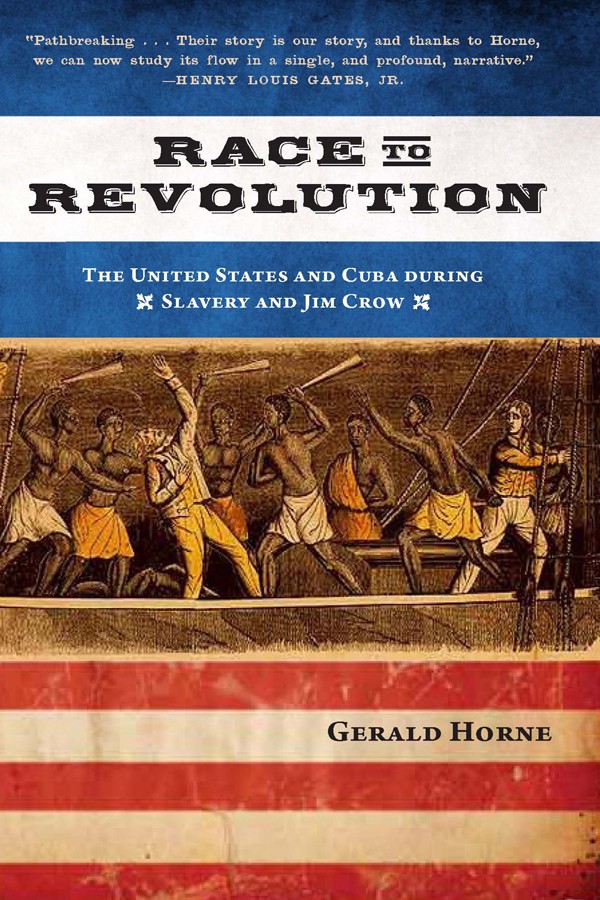Race to Revolution- The U.S. and Cuba during Slavery and Jim Crow

429 pages
Paper ISBN: 978-1-58367-445-1
Cloth ISBN: 978-1-58367-446-8
June 2014
Also available as an e-book
Monthly Review Press
Paper ISBN: 978-1-58367-445-1
Cloth ISBN: 978-1-58367-446-8
June 2014
Also available as an e-book
Monthly Review Press
The histories of Cuba and the United States are tightly intertwined and have been for at least two centuries. In Race to Revolution, historian Gerald Horne examines a critical relationship between the two countries by tracing out the typically overlooked interconnections among slavery, Jim Crow, and revolution. Slavery was central to the economic and political trajectories of Cuba and the United States, both in terms of each nation’s internal political and economic development and in the interactions between the small Caribbean island and the Colossus of the North.
Horne draws a direct link between the black experiences in two very different countries and follows that connection through changing periods of resistance and revolutionary upheaval. Black Cubans were crucial to Cuba’s initial independence, and the relative freedom they achieved helped bring down Jim Crow in the United States, reinforcing radical politics within the black communities of both nations. This in turn helped to create the conditions that gave rise to the Cuban Revolution which, on New Years’ Day in 1959, shook the United States to its core.
Based on extensive research in Havana, Madrid, London, and throughout the U.S., Race to Revolution delves deep into the historical record, bringing to life the experiences of slaves and slave traders, abolitionists and sailors, politicians and poor farmers. It illuminates the complex web of interaction and influence that shaped the lives of many generations as they struggled over questions of race, property, and political power in both Cuba and the United States.
In his pathbreaking book, Gerald Horne reveals how the histories of Cuba and the United States, from the slave trade to Jim Crow and the Cold War, have always been closer and more turbulent than the ninety miles separating them across the Straits of Florida. Indeed, one cannot possibly understand the journey from bondage to freedom in America without wrestling with its consequences for the people of African descent in Cuba. Their story is our story, and thanks to Horne, we can now study its flow in a single, and profound, narrative.
An important intellectual event … Hopefully, someone will discover over there, in the capital of the Empire, these works by Professor Horne. And may they find time to read them.
Gerald Horne is one of our most original historians.
Gerald Horne’s epic history will help many readers understand the special relationship between slavery, African Americans, and Cuba over the centuries. Horne continues in the deep tradition of Frederick Douglass, who described Cuba as ‘the great western slave mart of the world.’ Horne is in the forefront of historians laboring to revise the entire story of the Americas until the broken pieces are mended.
Horne offers new insights and thoughtful analysis of the comparative and at time complementary circumstances of slavery and racial animus in Cuba and the United States, and in the process reveals a new dimension to the complexities of the Cuba-U.S. problematic. Race to Revolution is a very much welcome and important contribution to the scholarship on the workings of trans-national systems.